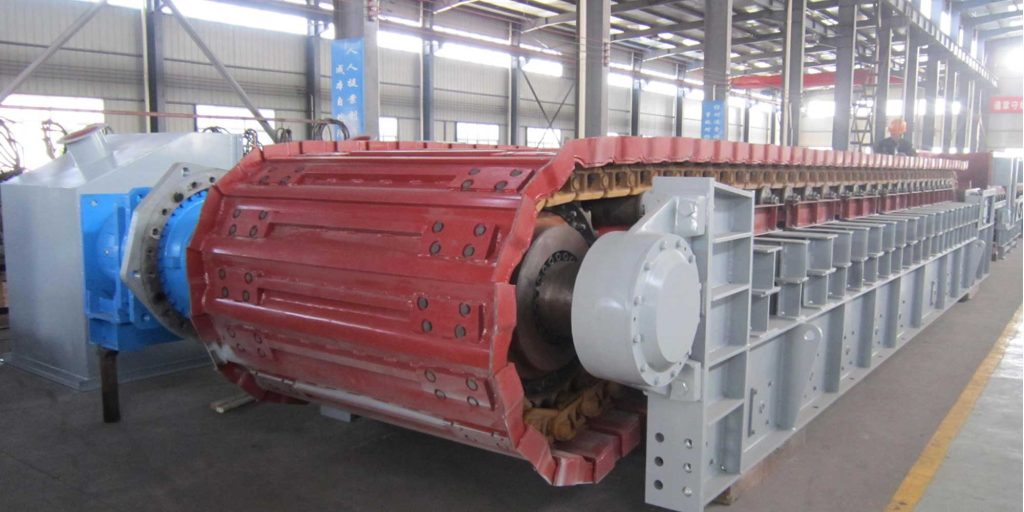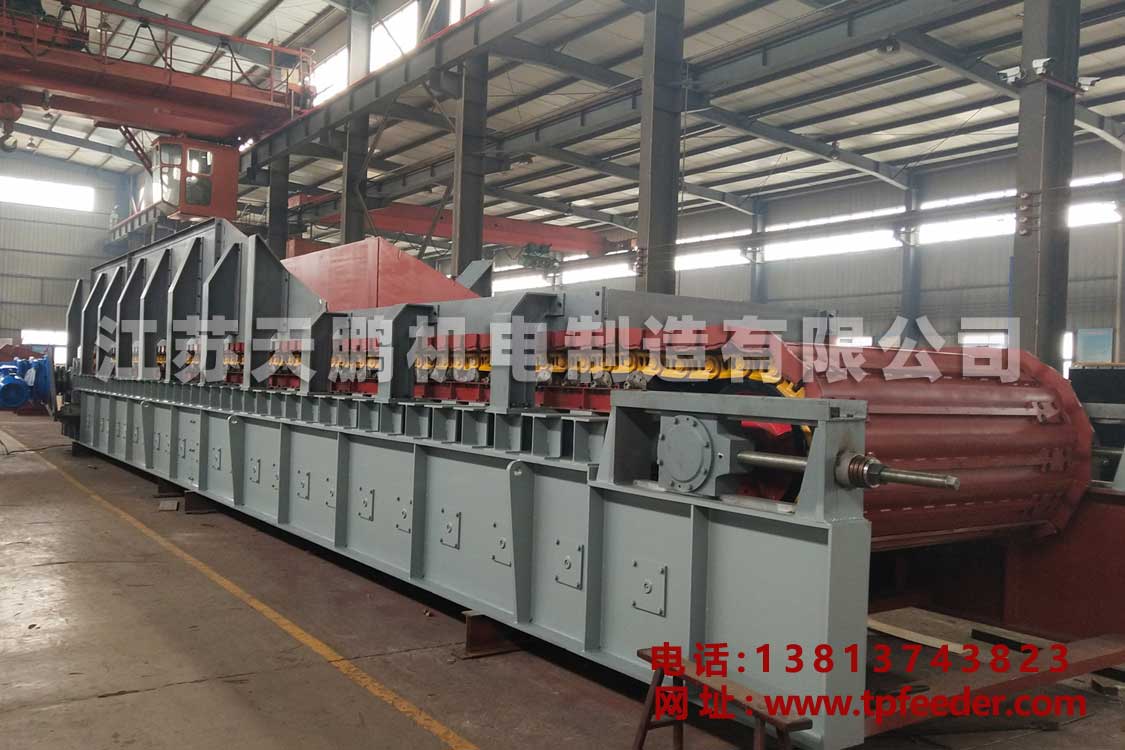An apron feeder is a type of material handling equipment that is used to transport materials from a hopper or bin to a downstream process or equipment. The feeder consists of a series of overlapping pans or plates that are attached to chains and driven by sprockets. The pans move along the length of the feeder and scoop up the material, which is then carried along the length of the feeder and discharged at the end.
One critical component of the apron feeder is the shaft, which is responsible for transmitting power from the drive system to the sprockets and chains that move the pans. The shaft must be designed to withstand the stresses and loads imposed by the material being transported, as well as the operating conditions of the feeder.
Design Considerations
The design of an apron feeder shaft is critical to the performance and reliability of the feeder. The shaft must be designed to withstand the bending, torsional, and axial loads imposed by the material being transported, as well as the operating conditions of the feeder.
One of the key design considerations for an apron feeder shaft is the material. The shaft must be made from a high-strength material that can withstand the stresses and loads imposed by the feeder. Common materials used for apron feeder shafts include carbon steel, alloy steel, and stainless steel.

Another design consideration is the diameter of the shaft. The diameter of the shaft must be large enough to transmit the required torque and power to the sprockets and chains that move the pans. The diameter of the shaft is also important for minimizing deflection and ensuring smooth and consistent operation of the feeder.
Other design considerations for apron feeder shafts include the length of the shaft, the type and arrangement of bearings used to support the shaft, and the surface finish of the shaft. The length of the shaft must be sufficient to span the width of the feeder and accommodate the required number of sprockets and chains. The bearings must be designed to handle the radial and axial loads imposed by the shaft and ensure smooth and consistent operation of the feeder. The surface finish of the shaft must be smooth and free from defects to minimize wear and friction.
Manufacturing Process
The manufacturing process for apron feeder shafts typically involves several steps, including forging, machining, heat treatment, and finishing.
Forging involves the shaping of the raw material into the desired shape using a hammer or press. Forged shafts are stronger and more reliable than shafts that are machined from a solid piece of material.
Machining involves the removal of material from the forged shaft to achieve the desired dimensions and tolerances. Machining may involve turning, milling, drilling, or grinding, depending on the specific requirements of the shaft.
Heat treatment is a critical step in the manufacturing process for apron feeder shafts. Heat treatment involves heating the shaft to a specific temperature and then cooling it rapidly to achieve the desired mechanical properties. Heat treatment can improve the strength, hardness, and toughness of the shaft and ensure its reliability and longevity.
Finishing involves the final surface treatment of the shaft, such as polishing, plating, or coating. The surface finish of the shaft can affect its wear resistance, corrosion resistance, and lubrication properties.
TPI Apron Feeder Shafts
Tian Peng & Idler (TPI) is a leading manufacturer of conveyor components, including apron feeder shafts. PPI offers a range of apron feeder shafts to suit different applications and operating conditions.
TPI offers a range of apron feeder shafts to suit different applications and operating conditions. The TPI apron feeder shafts are made from high-strength materials, such as carbon steel, alloy steel, and stainless steel, and are designed to withstand the stresses and loads imposed by the material being transported.
The TPI apron feeder shafts are available in a range of diameters and lengths to suit different feeder widths and operating conditions. The shafts are also available with different types and arrangements of bearings to ensure smooth and consistent operation of the feeder.
TPI apron feeder shafts are manufactured using a combination of forging, machining, heat treatment, and finishing processes to ensure their strength, reliability, and longevity. The shafts are forged from high-strength materials to achieve the required mechanical properties and are then machined to achieve the desired dimensions and tolerances. The shafts are then heat treated to improve their strength and toughness and ensure their reliability and longevity. Finally, the shafts are finished to achieve the desired surface finish and properties.
Conclusion
The apron feeder shaft is a critical component of the apron feeder and is responsible for transmitting power from the drive system to the sprockets and chains that move the pans. The shaft must be designed to withstand the stresses and loads imposed by the material being transported, as well as the operating conditions of the feeder. Tian Peng & Idler (TPI) offers a range of apron feeder shafts to suit different applications and operating conditions. TPI apron feeder shafts are manufactured using a combination of forging, machining, heat treatment, and finishing processes to ensure their strength, reliability, and longevity.
